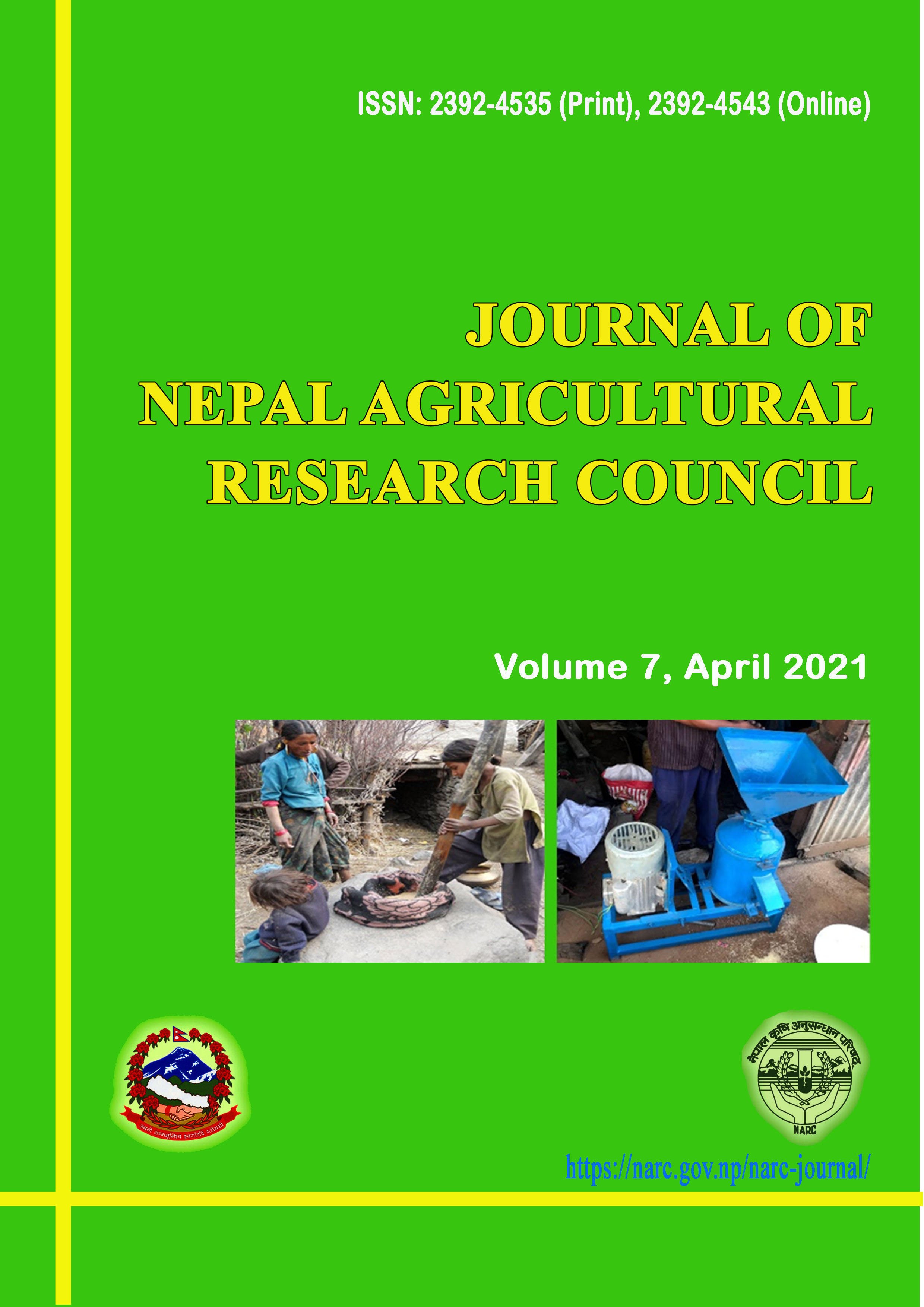Determinants of Small-Scale Mechanization for Potato Farming: A Case from Bangladesh
DOI:
https://doi.org/10.3126/jnarc.v7i1.36923Keywords:
Adoption, farm mechanization, ordered probit model, potatoAbstract
Identifying the determinants of farm mechanization can play a crucial role in the agriculture sector’s development. The present study identifies the determinants of potato farm mechanization employing the ordered probit model. A total of 150 potato farmers were interviewed to achieve the objectives. The findings indicate that only around 13% of the respondents were high adopters. The adoption of potato farm mechanization was influenced by education, spouse education, farm size, and training. Marginal effect analysis suggested that farm size and training decrease the likelihood of being in the low adopter’s category, respectively, by 13.2% and 10%, while increases the likelihood of being in the high adopter’s category by 7.5% and 5.7%. Policy implications included more investment in extension facilities such as training from public agencies to sustain and increase adoption. Modifying the existing extension strategy by targeting not only primary farmers but also members of their families would help with the widespread adoption of farm mechanization.
Downloads
Downloads
Published
How to Cite
Issue
Section
License
This license enables reusers to distribute, remix, adapt, and build upon the material in any medium or format for noncommercial purposes only, and only so long as attribution is given to the creator.




